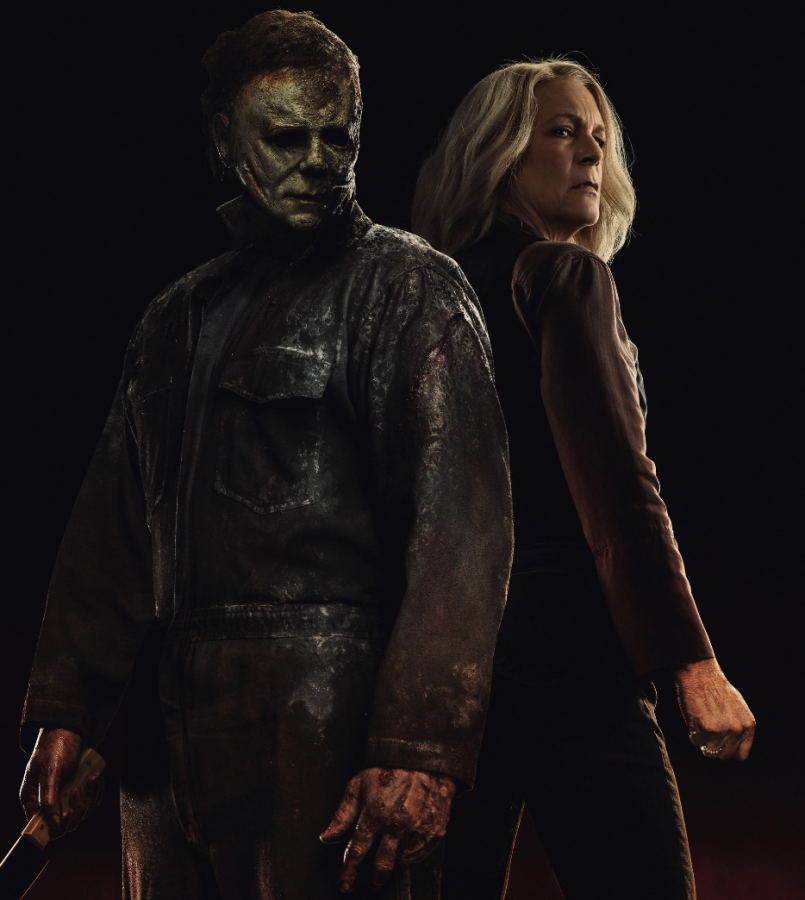Editor’s Note: This article contains spoilers for “Halloween Ends”
John Carpenter’s original “Halloween” codified many of the elements we now consider to be staples of the slasher subgenre. Though, one can look to “Black Christmas” and Italian giallo films for additional inspiration. The 1978 film spawned hundreds of movies with knife-wielding serial killers and a final girl.
With everything it’s done for the genre, “Halloween” is an undeniably tough act to follow. Try too hard to replicate the magic and you end up with an underwhelming sequel, like “Halloween 4: The Return of Michael Myers.” But, stray too far from the original’s appeal and you get generic schlock like 2002’s “Halloween: Resurrection,” Busta Rhymes’ performance notwithstanding.
“Halloween Ends” is in a third class all its own. Director David Gordon Green has made a sequel to “Halloween Kills,” but he’s also made a movie that redefines the power of Michael Myers altogether. The conclusion of Green’s trilogy includes a series of big artistic swings that have infuriated some die-hard Michael Myers fans, but which I believe have made for a vastly entertaining horror oddity.
The film opens with Corey Cunningham, played by Rohan Campbell, a shy Haddonfield teen who’s been tasked with babysitting on Halloween night. The familiar setup takes a hard turn when tragedy leaves Corey as a local pariah.
The movie picks up a year later with the Strode family, including Laurie played by Jamie Lee Curtis and Allyson played by Andi Matichak, still trying to distance themselves from Michael Myers’ devastating killing spree.
When Allyson meets Corey, they strike up a romance. But once Laurie meets Corey, she gets a familiar dark feeling that leads her to believe that Haddonfield may be in serious danger once again.
David Gordon Green isn’t afraid to take chances with this franchise. The previous film, “Halloween Kills” was very explicit with its allegories, portraying mass hysteria with the verbiage and iconography of Trump-era mob mentality.
Anyone remotely familiar with film Twitter will remember the meme of Jamie Lee Curtis reiterating the theme of “trauma” during the film’s press tour. Such heavy-handed choices are bound to yield mixed results. While “Halloween Kills” felt joyless and ham-fisted, the choices made in “Halloween Ends” are playful and jaw-dropping.
If it sounds like there’s not a lot of Michael Myers in this story, it’s because there isn’t. For the first half of the film, it’s merely the memory of his terrors that haunt the town of Haddonfield. Imitators have spread throughout the community, committing similar atrocities.
In a bold move, the filmmakers have placed Myers in a more metaphysical state of influence, like some sort of devil figure. At one point in the film, Corey is confronted by Myers in a sewer and is seemingly given an evil power just by looking into Myers’ eyes. After their encounter, Corey begins to exhibit more antisocial and aggressive behavior. Myers is no longer a simple serial killer on the hunt for babysitters: he’s an unholy entity.
As strange as the story is, the film also acts as a loving goodbye for Jamie Lee Curtis’ performance as Laurie Strode, which she took on over 40 years ago. While the film serves up plenty of terror for her, it also builds a genuinely complex and moving relationship between her and her granddaughter.
The moments shared between them call back to David Gordon Green’s early independent films, which thrived on genuine human connection. The respect that the filmmakers have for Laurie as a character truly pays off in the touching final moments of the film.
There’s another film I couldn’t help but think about while watching “Halloween Ends.” Five years ago, another legacy sequel to a beloved horror franchise was released, “Alien: Covenant.” “Covenant” had the monumental task of both continuing the story of “Prometheus” and appeasing “Alien” fans who hated “Prometheus.”
The resulting film is a strange blend of gothic storytelling and grungy, bloody sci-fi action. Unsurprisingly, it got mixed reviews and disappointed at the box office, effectively killing Ridley Scott’s plan for a third entry in the prequel trilogy.
It appears that “Halloween Ends” is on a similar trajectory. With a relatively disappointing box office and generally negative reviews, the film is struggling to find an audience. Die-hard fans have found the lack of Michael Myers an affront, and casual viewers may get thrown off by the bizarre twists of the story.
But, if you’re looking for something truly unique, look no further than “Halloween Ends.” It’s rare that we get a big budget film that takes so many narrative risks, and so many entertaining escalations of a well-known franchise. “Halloween Ends” gets weird and the franchise is all the better for it.
Thomas Machacz can be reached at [email protected].



















